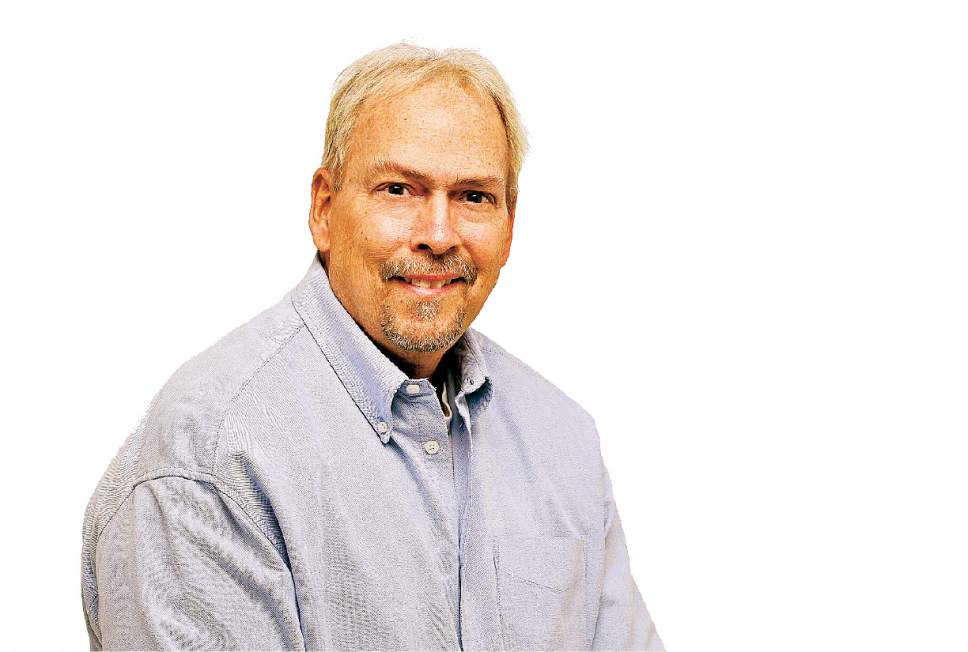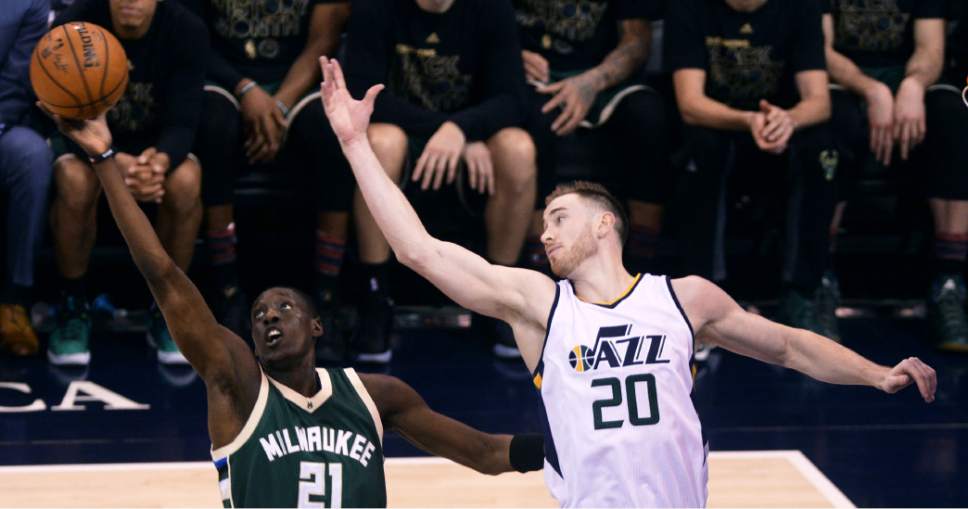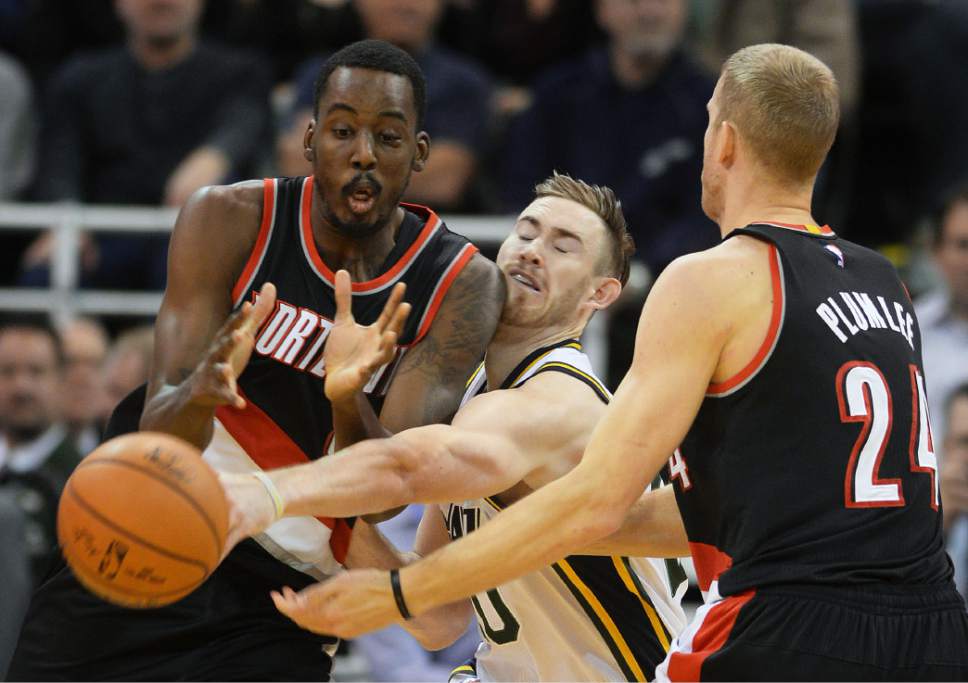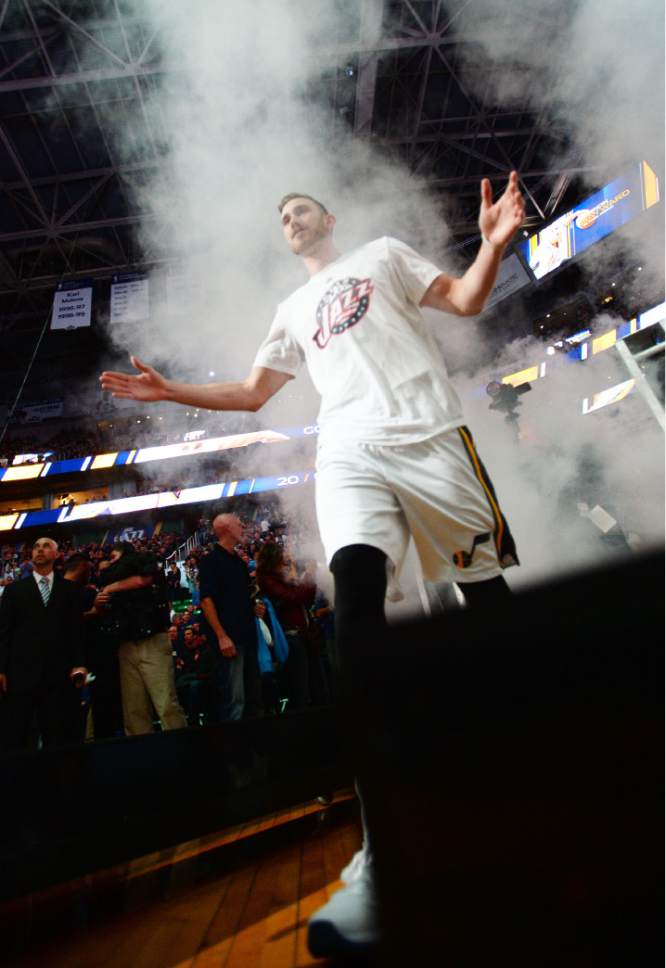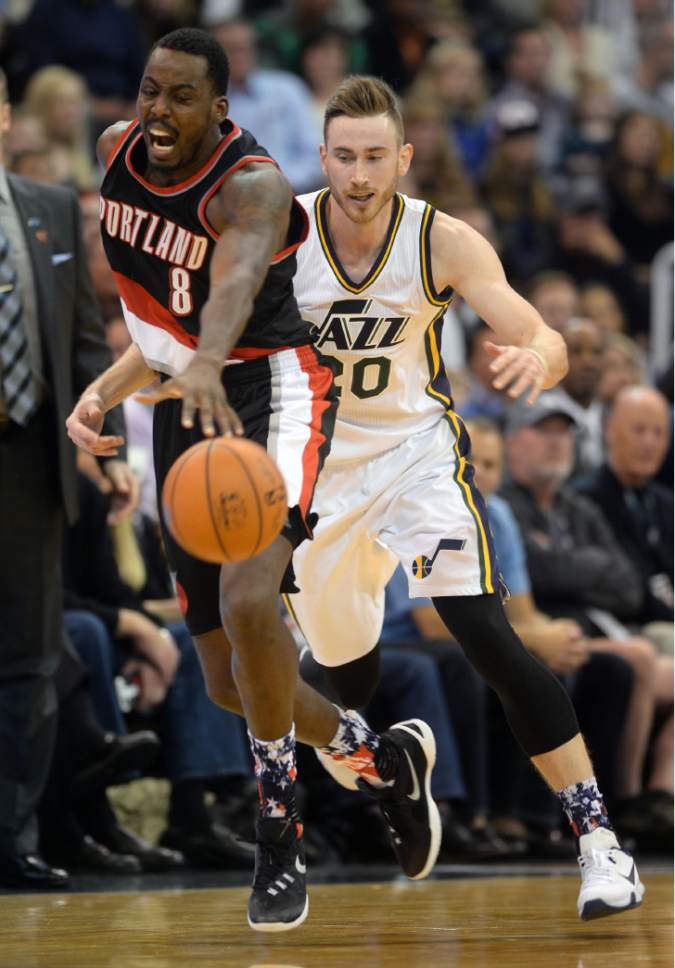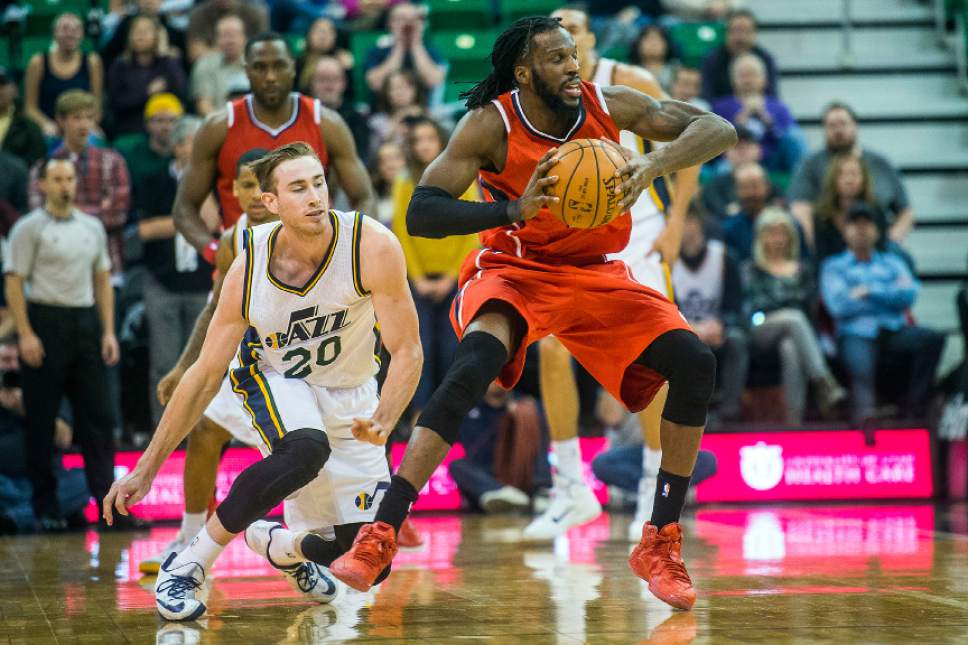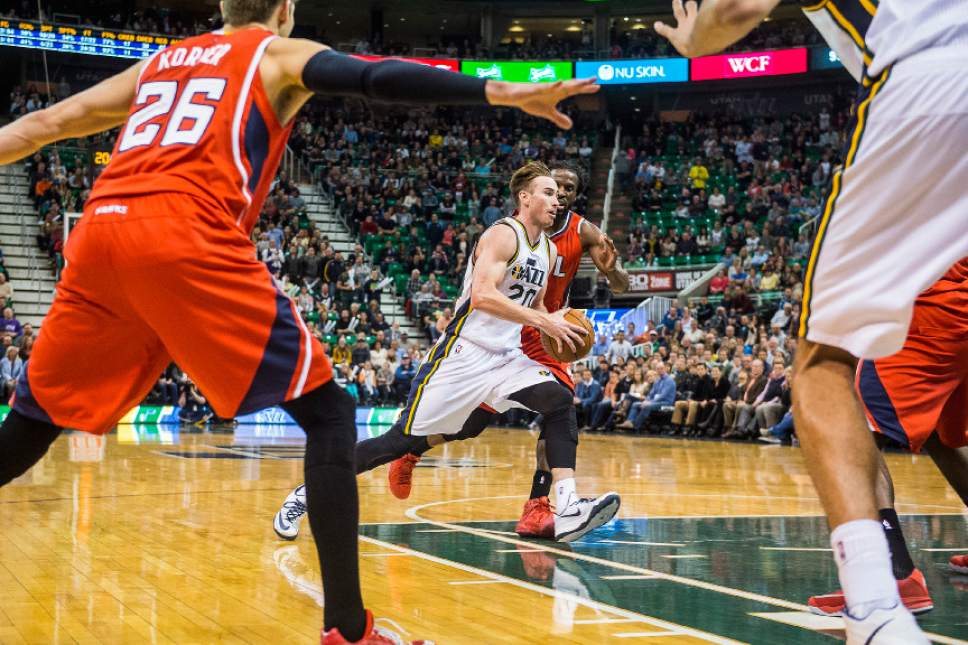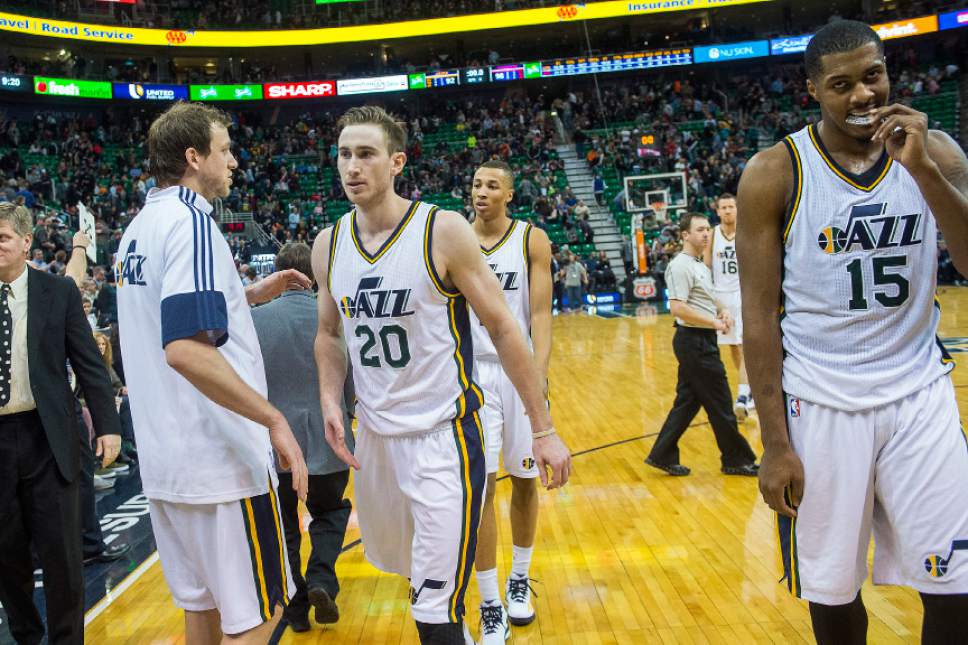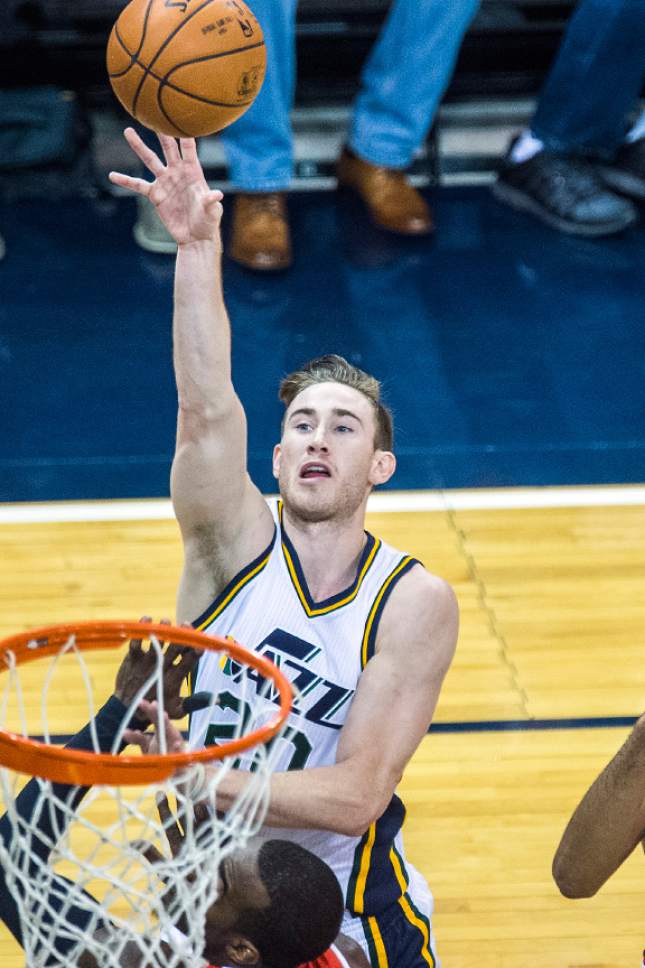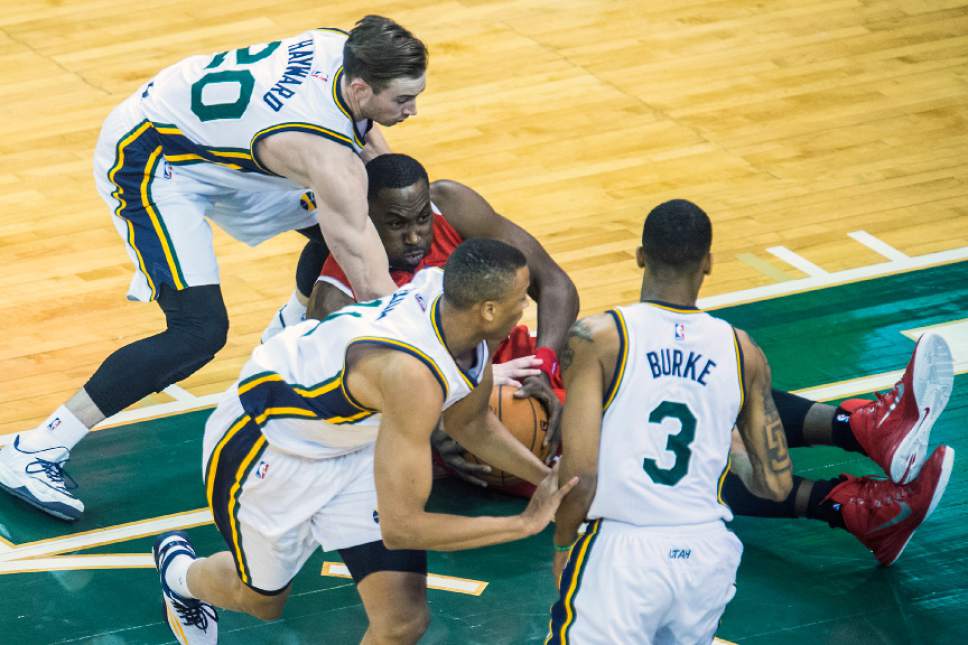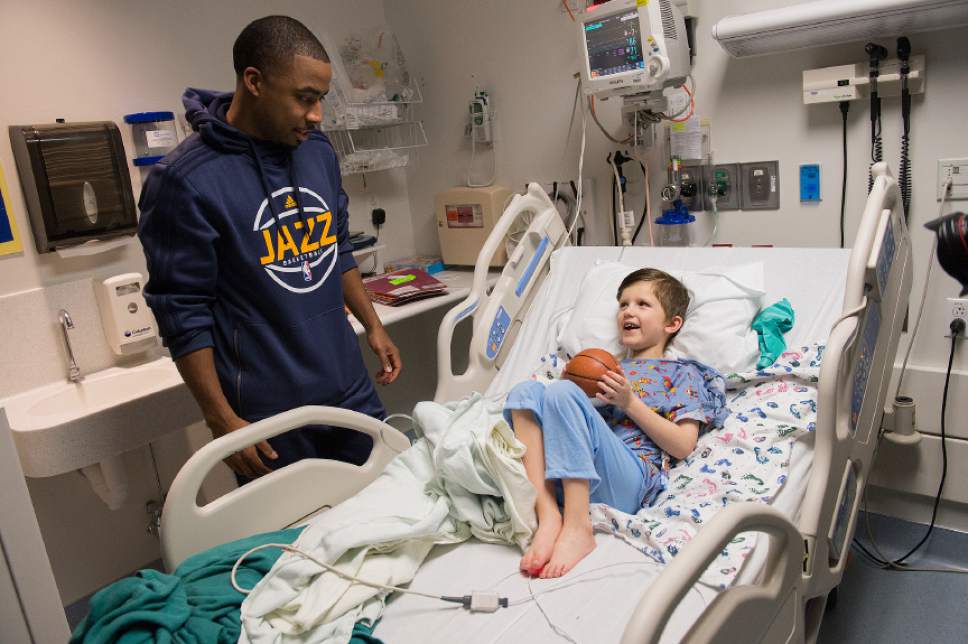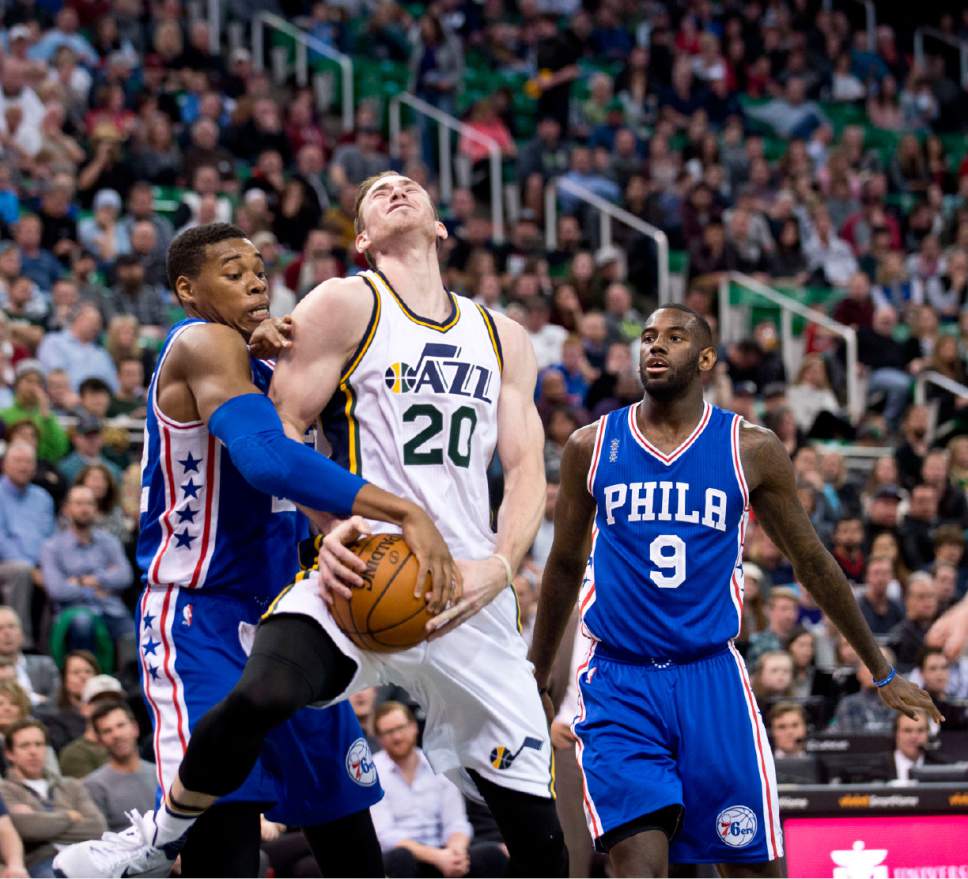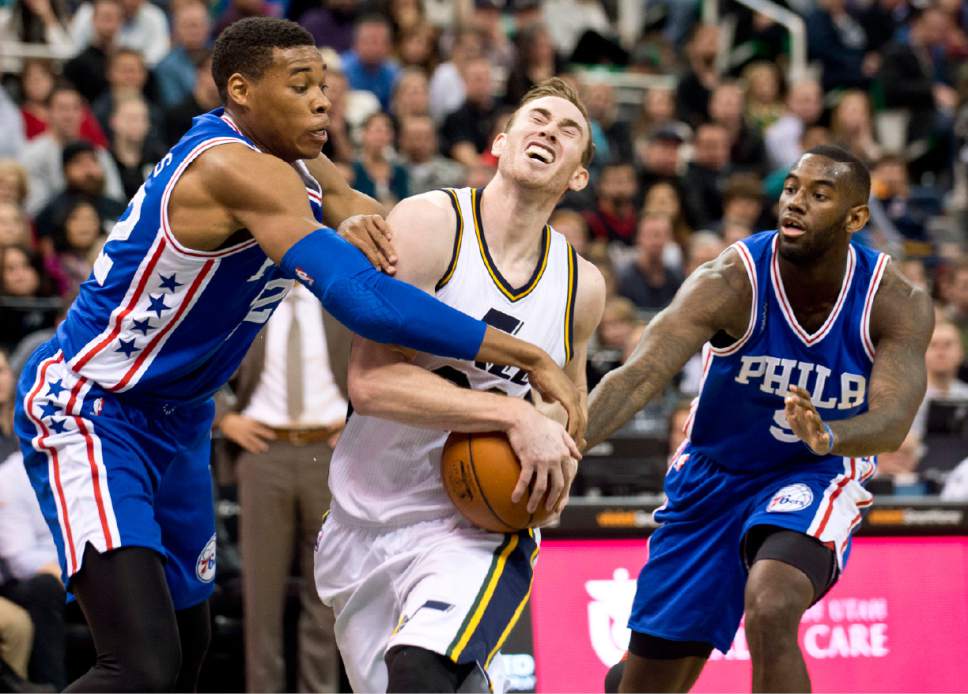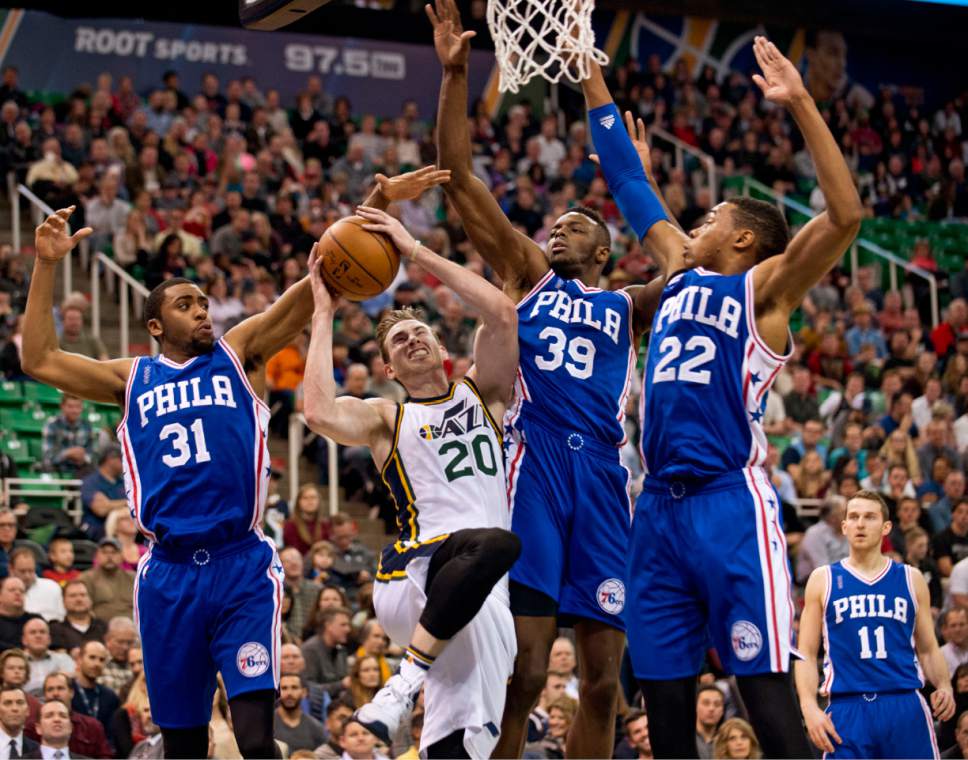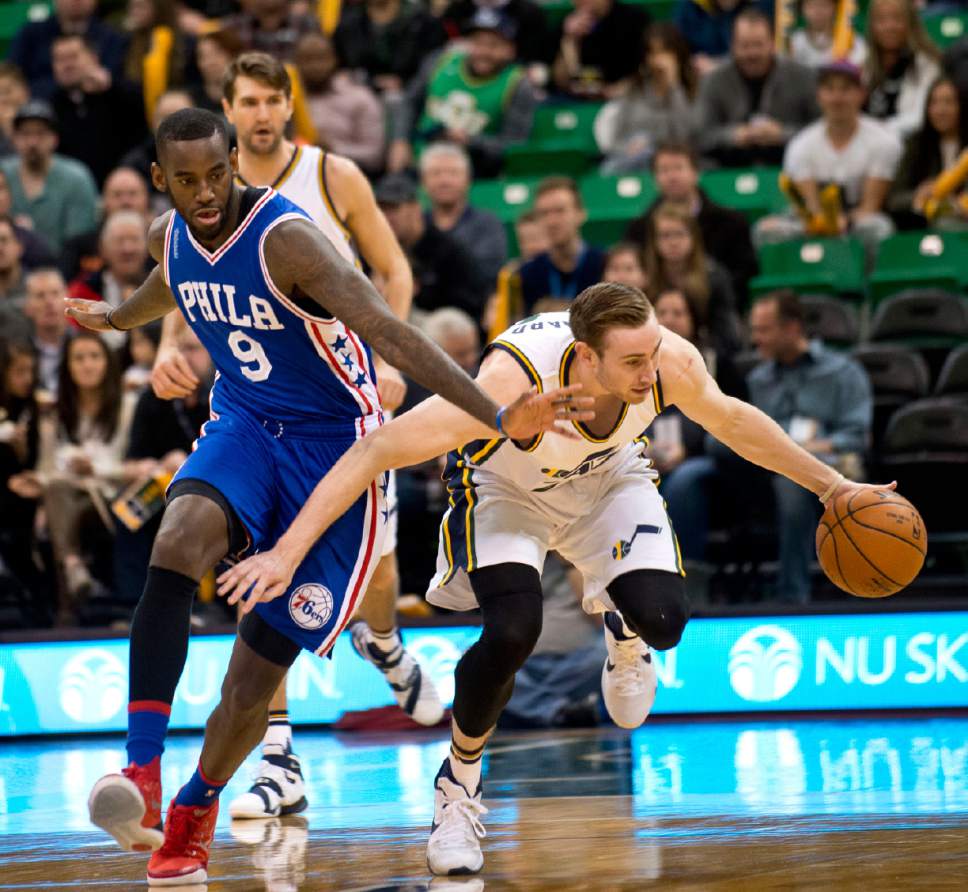This is an archived article that was published on sltrib.com in 2017, and information in the article may be outdated. It is provided only for personal research purposes and may not be reprinted.
Goodbye, Gordon Hayward, we hardly knew you.
Not the real you.
Not the you who was ducking out down a back alley, looking for the easier route.
People around here only got bits and pieces of the whole. Over the past seven seasons, we saw the ups and downs. And then the steady climb. We saw the improved shooting, the swelling confidence, the broadening shoulders, the Kobe-style body language that screamed to anyone watching that the kid from the Midwest had grown all up.
We ultimately got glimpses of the determined man who made himself into an All-Star after Quin Snyder laid the plans at his feet and handed the team over to him, giving him the ball, the means to make himself a terrific presence inside the Jazz's systems. Those systems were all go. And now Hayward is gone.
Gone to what he sees as a better opportunity with the Celtics, through whatever lens he's viewing it. But there seems to be more to the story than just his look ahead. Maybe we always should have known, seeing that Hayward was the pitchman for a moving company. His perception of his time with the Jazz, straight from the beginning, was and is bent.
The fans booed his selection on draft night. D-Will threw the ball at him, making a scene. He didn't like certain aspects of the Jazz operation. When he turned over the ball in key situations, folks wondered out loud if he was trying to do too much. The Jazz made him prove to them that, under the changing economic structure of the NBA, he was worth a max contract. When they hesitantly did pay him after Charlotte offered him, some meanie in the press said the Jazz were paying for a Lamborghini and getting a Buick. When he worked his tail off to transform himself into the sweetest of rides, he never entirely forgot the disrespect.
He carried various hurts with him, never letting them go.
Even when fans, fully appreciative of what he had become, cheered his name and validated his game, begging him to return, putting up billboards, sending him letters, praising him to no end, Hayward was …
Cool.
He never really warmed to a fan base that wanted to adore him, as much as any fan base could have, given the circumstances. The Jazz mostly lost when Hayward played for them. And when Dennis Lindsey entered his rock-steady formula for rebuilt success and Snyder developed a group of young players straight through all kinds of adversity into a 51-win outfit, he decided the winning in Utah wasn't good enough.
That's the thing that's objectionable from the outside in here.
A 51-win team that might have won 55 games with a little help from good fortune and that now was staring down the barrel at 60 wins this coming season, wasn't enough for Gordon Hayward.
Ricky Rubio, one of the best setup men in the league, was brought in. Not enough.
Joe Ingles, Hayward's best friend on the team, was re-upped for four years and 52 million smackers. Not enough.
Jazz fans' billboards and songs and please-stay videos. Not enough.
Rudy Gobert's play and his tweets. Not enough.
Snyder's coaching. Not enough.
People talk about the draw of Brad Stevens at Boston, Hayward's college coach, but the player made more progress under Snyder than he did under Stevens. Snyder is every bit the coach that Stevens is. The fans of Utah are every bit the fans that Celtics fans are. As formerly constituted, the Jazz were every bit the talented young team that Boston was, probably better. The Jazz money was stacked higher than the Celtics money was, which should have spoken to Hayward, who once was about as frugal an individual as there was in the NBA.
Look, this was Hayward's decision. It was a personal decision. And Hayward made it personal, stumbling and bumbling around with it.
He leaves behind the team, the people, who may not have been perfect but that were fine enough to help develop him into the player he is. That says something about who and what Hayward is, as a competitor, as a man. That's the confounded thing about NBA free agency — players expect fans and franchises to give them darn near everything they've got, and then when they mostly receive it, they remember the times when maybe they didn't get everything exactly the way they wanted it. And they run off to some other place where the grass looks greener, but the people and circumstances are no more flawless.
Fenway, Schmenway. Boston fans might cheer him now. Wait until he doesn't win a championship.
Hayward could have owned this state had he shown a warmer side, had he reciprocated the positive emotion that did come his way. He made basketball advances that were profound. His connection to Utah, to the people here, though, seemed emptier than it should have.
Now as the spin of the basketball goes round, Hayward will get his scoring chances from a ball-dominant point guard, Isaiah Thomas. He'll be second and maybe third in line for points, depending on how the Celtics roster shapes up. Instead of being the man, he'll be just a guy, just a dude.
Like the old Bruce Springsteen song warns: "With every wish, there comes a curse."
He'll get ripped when he disappoints in a way that was relatively rare in Salt Lake City. If he doesn't live up to expectations, even just on some nights, he'll get booed, big time, the way they do it downtown, especially when the Sam Adams is flowing. He'll have to explain his statements, recorded on video in days gone by, about how much he dislikes New England demigod Tom Brady.
But he'll no longer be bothered by the baggage of the past among the fetchers out here.
He'll no longer have to deal with the Warriors and the Spurs and the Rockets and the rest of the West, where real basketball is played, preferring to take on the softies in the East, and then, eventually, when all the exhibitions are done, LeBron. He'll have an easier route to being named an All-Star because almost all of the best players are out this way. He'll have an easier path to getting killed by Golden State, if the Celtics ever make it to the Finals.
That's what Hayward wants, that's what we didn't know. He wants it easier.
Still, at some point, a juncture that most definitely will come, sooner or later, Hayward will look back more clearly at his time and his climb in Utah and understand what he had here, how good he had it. While it was imperfect and always would have been, he'll wonder what might have happened had he stuck around, playing for Snyder, playing with Rudy, finishing what he started, fulfilling every bit of his potential.
What if?
It's a question with an answer he'll never find.
GORDON MONSON hosts "The Big Show" with Spence Checketts weekdays from 3-7 p.m. on 97.5 FM and 1280 AM The Zone. Twitter: @GordonMonson.


